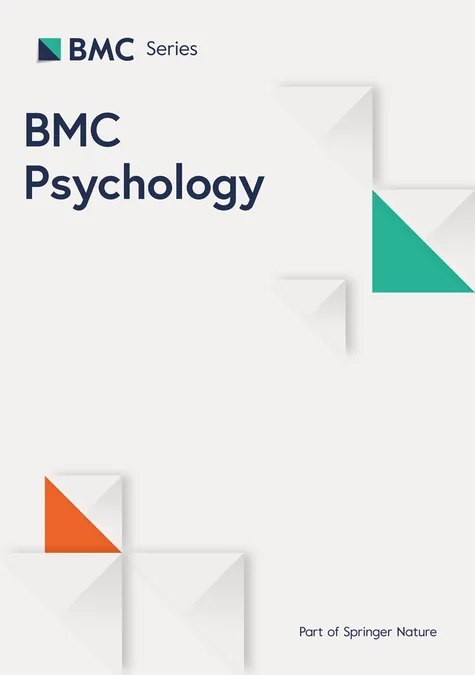
Unlocking Creativity: The Link Between Personality, Emotions, and Self-Concept in Young Adults
2024-11-28
Author: Daniel
The Journey of Self-Discovery in Young Adults
The shift from adolescence to young adulthood is a crucial period characterized by significant personal and social transformations. One of the most vital aspects of this transition is the evolving attitude toward emotions such as joy, sadness, anger, disgust, and fear. This understanding of emotions is essential for young adults as they navigate their relationships, decisions, and overall well-being. The concept of a "creative self" serves as a guiding light, revealing individuals' authentic selves through creative expression—a transformative journey that empowers self-discovery and personal authenticity.
The Emergence of Personality and Creativity
Extensive research highlights the intricate interconnection between personality traits—particularly the Big Five (openness, conscientiousness, extraversion, agreeableness, and neuroticism)—and creative self-concept. Studies indicate that traits like openness to experience are consistently linked with higher creativity. For instance, females who score high in extraversion tend to experience favorable outcomes in creative self-efficacy, while agreeableness inversely affects it. Interestingly, for males, higher conscientiousness correlates with enhanced creative self-efficacy.
This suggests that personality can predict creative capabilities, guiding individuals in both artistic expression and problem-solving. However, the landscape remains complicated, as emotional responses also play a pivotal role in influencing creative performance. Generally, a positive mood has been shown to boost creativity, while the impact of different emotions remains an area ripe for further exploration.
Exploring the Emotional Tapestry
A study conducted in China over a 14-day period revealed that individuals with a strong creative self-concept exhibit heightened happiness, mediated by their creative self-assessment. Moreover, research indicates that people who view their emotions positively are more likely to employ adaptive emotional regulation, while those who adopt a negative stance toward emotions often resort to maladaptive techniques, harming their emotional well-being.
The fusion of emotional attitudes and personality traits creates a complex framework shaping how individuals perceive, express, and harness their creativity. Recent findings suggest that primary emotions, once thought to be mere reactions, fundamentally shape one's personality and can cater to creative expression.
The Study Overview: Objectives and Hypotheses
This study endeavors to investigate the interplay of creative self-concept, personality traits, and attitudes toward emotions among young adults. The objectives are clear:
1. To identify the relationship between creative self-concept and personality traits.
2. To explore the connection between creative self-concept and attitudes toward various emotions.
3. To evaluate the correlation between personality traits and attitudes toward emotions.
4. To pinpoint predictors of creative self-concept.
The study hypothesizes that:
1. Creative self-concept will be positively correlated with personality traits like openness and conscientiousness.
2. Neuroticism will show a negative relationship with creative self-concept.
3. Creative self-concept may not correlate directly with attitudes toward emotions like joy, anger, sadness, disgust, and fear.
Methodology and Participants
Researchers surveyed 200 college students aged between 18-25, utilizing standardized scales to measure creativity, personality traits, and emotional attitudes. Participants included a diverse demographic, primarily students, with a balanced representation across gender lines.
The data was meticulously analyzed using SPSS software to uncover correlations and relationships among the variables.
Key Findings and Insights
1. A strong belief in one’s creativity tends to correlate with higher imagination (openness), determination (conscientiousness), and sociability (extraversion).
2. Interestingly, results indicate that positive attitudes toward sadness and fear play significant roles in shaping a robust creative self-concept, suggesting that embracing these emotions can enhance creative resilience and growth.
3. Openness emerged as the strongest predictor of creative self-concept, accounting for a substantial amount of variance, while neuroticism and a positive attitude toward sadness contributed additional variance.
Conclusion: Implications for Personal Development
This research underscores the pivotal role that personality traits and emotional attitudes play in shaping creative self-concept among young adults. By fostering an openness to experience and a positive view of emotions, individuals can enhance their creative capacities, which is vital not only for artistic endeavors but also for personal development throughout life’s various challenges. This exploration offers insights that could inform educational strategies, clinical approaches, and personal growth initiatives to help young adults unleash their creative potential.

 Brasil (PT)
Brasil (PT)
 Canada (EN)
Canada (EN)
 Chile (ES)
Chile (ES)
 Česko (CS)
Česko (CS)
 대한민국 (KO)
대한민국 (KO)
 España (ES)
España (ES)
 France (FR)
France (FR)
 Hong Kong (EN)
Hong Kong (EN)
 Italia (IT)
Italia (IT)
 日本 (JA)
日本 (JA)
 Magyarország (HU)
Magyarország (HU)
 Norge (NO)
Norge (NO)
 Polska (PL)
Polska (PL)
 Schweiz (DE)
Schweiz (DE)
 Singapore (EN)
Singapore (EN)
 Sverige (SV)
Sverige (SV)
 Suomi (FI)
Suomi (FI)
 Türkiye (TR)
Türkiye (TR)
 الإمارات العربية المتحدة (AR)
الإمارات العربية المتحدة (AR)